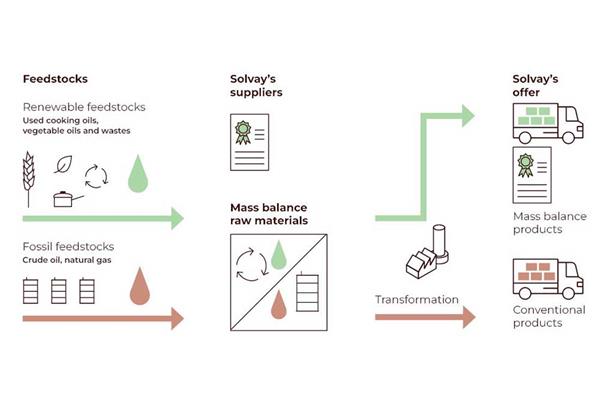
Solvay has announced production of hydroquinone and hydroquinone monomethylether in compliance with the ISCC PLUS System. The products are designed to meet demand for enhanced sustainability, more renewable feedstocks and reduced carbon footprint for the polymer, coating, adhesive, pharmaceutical and agrochemical markets.
Solvay has announced that the production of its hydroquinone (HQ) and hydroquinone monomethylether (MeHQ) in Saint-Fons, France has been accredited to comply with the mass balance accounting regime of the International Sustainability and Carbon Certification (ISCC) PLUS system[1].
In addition to being used as building blocks in the formulation of high-performance engineering thermoplastics and in many other industrial application, such as pharmaceuticals and agrochemicals, HQ and MeHQ also serve as raw materials in epoxy and polyester coatings, in polyurethane adhesives, and as inhibitors for monomer stabilization during production, storage and transportation.
Solvay aims at answering the need of those companies seeking to reduce the carbon footprint of their products and minimize fossil feedstock depletion.
“As a leading producer of HQ and MeHQ, offering mass balance certified grades exemplifies our strategic commitment to drive the change towards high-quality, sustainable solutions as the polymer and chemicals industry is transforming from a linear to a more circular economy,” says Jo Grosemans, Solvay Natural Growth Director.
Solvay’s certified renewable Hydroquinone MB and MeHQ MB products provide a solution for customers to replace incumbent fossil feedstock based synthetic grades, without any need for homologation and sampling or other modifications in storage and production. The replacement of primary fossil resources by responsibly-sourced and mass-balance certified renewable feedstocks aligns with the Solvay One Planet roadmap to continuously improve the sustainability of Solvay’s own operations (Scope 1, 2 and 3), as it also helps customers reduce their Scope 3 emissions.[2]
[1] Mass balance accounting according to the ISCC PLUS regime has become a globally acknowledged industry standard that defines a clear set of rules for tracking and tracing the content of circular and renewable feedstock in materials and end products. As a result, users of certified materials across the entire value chain can claim a measurably reduced carbon footprint for their formulations.
[2] Within the framework of the Greenhouse Gas Protocol (GHGP), Scope 1 refers to direct emissions from in-house production processes, Scope 2 to indirect emissions from purchased energy, and Scope 3 to all other indirect emissions from upstream and downstream sources, such as material supplies, packaging and transportation.